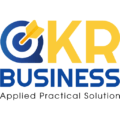OKR (Objectives and Key Results), a goal-setting and tracking methodology, isn’t just an effective management tool for successful businesses and unicorn startups worldwide. It can also be your guiding light as a young professional, helping you navigate your career path, pursue your passions, and achieve success. By applying a few core OKR principles, you’ll be amazed at how you can optimize your productivity, achieve significant accomplishments, and build a solid career from the very beginning. OKR.Business will share three key benefits of applying OKR management principles in this article.
The 80/20 Pareto Principle + OKRs: Focus on What Matters Most
Understanding the 80/20 Pareto Principle
The Pareto Principle, also known as the 80/20 rule, states that in most areas of life, 80% of our results come from 20% of our focused efforts. In the workplace, this means not all tasks are created equal. A few crucial tasks can deliver the majority of your desired results. This is the secret of many successful people to work smarter, not just harder. But how can we identify these crucial tasks?
OKRs Help Identify the Crucial 20%
Applying OKR management principles can help you by asking insightful questions like: “What are my long-term goals?”, “What is the most optimal and reasonable path to achieve those goals?”, “In the short and medium term, which decisions should I prioritize when faced with choices?”, “Having made a choice, am I aware and fully prepared to compromise on other secondary factors?”. By asking yourself similar questions, you’ll quickly see your ability to focus on tasks in a short amount of time, and you’ll be surprised at how you can optimize your performance and achieve better results every day.
Applying 80/20 + OKRs in the Workplace
When setting OKRs, you can apply the 80/20 principle by:
- Evaluating and categorizing tasks: Determine and categorize tasks based on their importance and impact on your goals before starting. You can discuss with colleagues and seek input from your supervisor to ensure your priorities are accurate and appropriate.
- Focusing resources on important tasks: Dedicate most of your time, focus, and effort to the 20% of tasks you’ve identified as having the greatest impact, ensuring you complete these tasks first. Don’t put off today’s work until tomorrow.
- Continuously updating and flexibly adjusting: Regularly review, discuss with your team, and incorporate company feedback to adjust your OKRs as needed, preferably on a weekly basis. Ensure you stay informed, updated, and aligned with the most critical tasks.
Transparency of OKRs: Boosting Motivation and Work Efficiency
OKRs as an Effective Communication Tool
OKRs are not just a tool for managing work but also a method for enhancing effective communication among team members and within the organization. A crucial aspect of OKRs is transparency. Open communication from leadership to team members ensures everyone has clear, updated information and context about both team and individual goals. When you know what’s happening, the difficulties and challenges the team is facing, and how your role and contributions specifically add value, it motivates you to overcome challenges and achieve what you and the team desire.
Strengthening Cohesion and Teamwork
Sharing information and progress on tasks also strengthens cohesion and teamwork. When everyone clearly understands the common goals and individual efforts, they are more motivated to work and proactively support each other, adjusting their work to stay in sync and achieve the desired results together.

Transparency and smoothness of information play an important part in creating motivation and achieving high performance at workplace.
The Importance of Proactive Communication
Proactive communication is key to maintaining transparency and consensus within the team. Actively sharing information, updating progress, and having regular discussions ensure everyone understands the goals and how to achieve them. This creates unity and contributes significantly to positive and effective communication.
Applying OKRs for Transparency and Proactive Communication
- Share goals and results: Ensure all team members are aware of the team’s objectives and key results.
- Regularly update progress: Frequently update progress and share it openly with the entire team.
- Encourage feedback: Create an open environment where everyone can contribute ideas and feedback on the progress and approach to achieving goals.
- Proactive communication: Ensure all members are promptly informed of any changes in plans and goals.
Setting Effective Key Results: The Right Path to Success
Combining SMART Goal-Setting Skills
When setting Key Results, applying the SMART principle (Specific, Measurable, Achievable, Relevant, Time-bound) is beneficial to ensure your goals are clear and feasible:

SMART principles help your organization and yourself significantly in active thriving toward your organization’s objectives and yours.
- Specific: Goals should be clear and specific to avoid confusion.
For example, instead of setting a goal to “Increase sales” you should set a specific goal like “Increase sales by 300 million VND from new customers this month compared to the previous month” instead of “Increase sales this month compared to last month.” - Measurable: Goals must be measurable so you can track progress and evaluate results.
For example, “Sales are recognized when and only when recorded in the company’s account” instead of “Sales are recognized based on the value of signed contracts.” - Achievable: Goals should be realistic and attainable, avoiding overly ambitious goals that can lead to discouragement.
For example, “The target sales for Q3 are 20% higher than the actual results recorded in Q2″ instead of “The target sales for Q3 are 200% higher than the actual results recorded in Q2.” - Relevant: Goals must be relevant and contribute to the overall objectives of the organization.
For example, “Strive to achieve personal sales of 100 million VND, contributing 10% to the total sales of the Sales department, equivalent to 5% of the company’s overall business target in Q4″ instead of “Try to achieve personal sales within my capabilities.” - Time-bound: Goals should have a clear deadline to ensure you have enough time and motivation to complete them on time with the team’s overall results.
For example, “Achieve at the minimum 90% of the target sales of Q1 and be recorded in the company’s account before day 25 of Mar” instead of “Achieve 90% of the target sales of Q1”
Determining Optimal KPIs
In general, KPIs (Key Performance Indicators) are a method for setting and measuring important metrics that help businesses and individuals clearly understand the results they need to pursue in their work. To determine optimal KPIs, you can apply OKR principles by:
- Selecting only the most relevant indicators: Ensure that the chosen KPIs accurately reflect the results that the organization, team, and you want to achieve.
- Setting specific targets for each KPI: For example, if the overall goal is to “Increase new customers,” the KPI could be “New customers using the product each month.”
- Regularly monitoring and evaluating: Continuously track and assess KPIs to ensure you’re on the right track and can make timely adjustments if needed.
The Exceptional Value of Applying OKR Management Principles

Applying OKR principles in management will contribute amazing results into your work.
Once you become more and more familiar with and can flexibly apply the three key points in implementing OKR management principles, you’ll notice a significant improvement in your ability to define and set key work goals effectively, even on a weekly or daily basis. Interaction with your team and superiors becomes incredibly smooth. Your spirit and motivation remain high, even with ongoing challenges and the need for continuous improvement.
Let’s recap the valuable and practical benefits of applying OKR management principles to your work as follows:
- Prioritization: Focus on what truly matters.
- Specificity and Measurability: Clear, quantifiable goals.
- Transparency, Clarity, and Timeliness: Open communication and timely updates.
- Challenging yet Achievable: Ambitious but realistic goals.
- Alignment with Overall Objectives: Goals that directly support the bigger picture.
- Time-Driven: Clear deadlines for accountability and focus.





